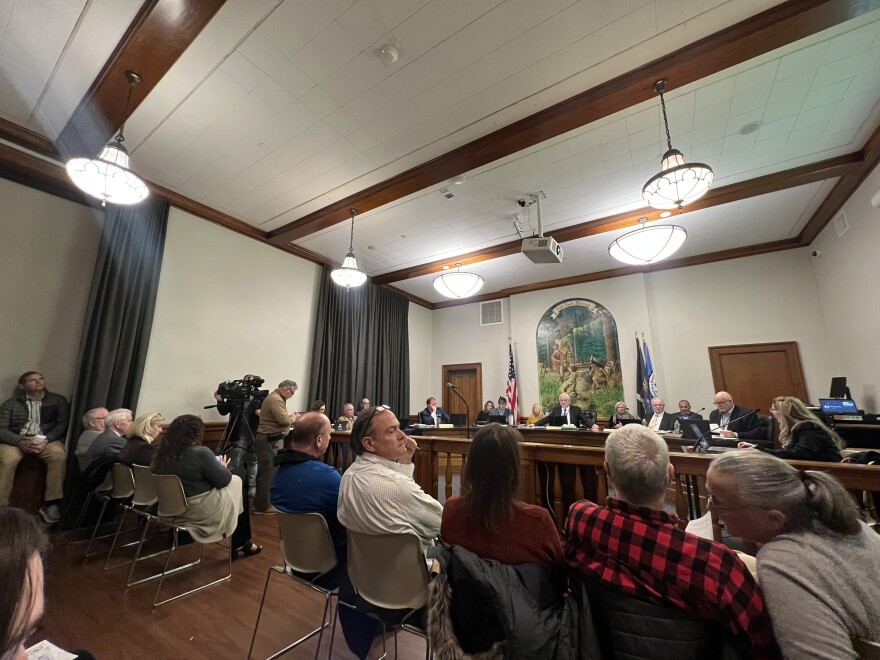A new draft of Saratoga Springs’ short-term rental regulations received public input at Tuesday’s city council meeting.
City Hall was packed with residents reacting to the latest draft of short-term rental regulations, which may soon come into effect.
For months, debate has centered on how the city could rein in the growing rental market that provides visitors alternatives to hotel rooms during the busy racing season.
Initial drafts of the regulations would require rental properties to be “owner-occupied” and rented for no more than 185 days a year.
At Tuesday’s meeting, Accounts Commissioner Dillon Moran presented the latest draft, which removed the owner-occupied requirement and lowered the number of rentable days to 150.
“Rental units as of January of 2022 was 693 and then as of January 2023 had gone up 367, and then further on getting up to around 1,220 at the time when we were doing this analysis which was between 2022 January and January of 2023. When we announced that we were looking at this we see a precipitous drop, so folks are paying attention, we recognize that,” said Moran.
State legislators have approved statewide regulations that would require property owners and platforms like Airbnb and VRBO to register with the state. Democratic Governor Kathy Hochul has yet to sign the legislation.
“We’re not going to do things or be repetitious to what the state law is doing. We’re doing a local licensing ordinance for us here locally so we understand where the facilities are, we can have an effective means of accountability and code enforcement, and safety. That’s it. That’s literally what we’re trying to do with our law,” said Moran.
The new local regulations would require residents looking to rent their primary and non-primary residences out to get a license for each property they want to rent with a maximum of two per person.
Fire inspections, a primary contact no more than 25 miles away from the rental property, and $1 million in insurance are among other requirements.
Some residents who oppose the regulations, like Cheryl Savage, said they treat short-term rentals unfairly.
“I personally clean everything myself to ensure a hygienic and clean environment. AirBnb makes it possible for me to be an independent and contributing member of this community, not reliant on others to take care of my house or myself. I hire people to fix what needs to be fixed and I pay up for upgrades that needed to be made in my house as an asset for me and my community. Your regulations ask more of us than a regulation for an apartment rental,” said Savage.
The legislation would also open a 24/7 hotline for residents to call in noise and occupancy violations. The first violation comes with a $2,500 penalty and a license can be revoked if a property receives three violations in two years.
Longtime local political figure Gordon Boyd says the legislation is long overdue.
“You are competing with hotels that put in a substantial investment, that pay property taxes, sales taxes, occupancy taxes, they are the same thing to the visitor. So, if the government here tonight, or whenever you get around to voting on it in a few days, if you pass this legislation you will be leveling the playing field so that everybody has a fair chance to compete for the visitor market,” said Boyd.
AirBnB did not immediately respond to a request for comment.
A vote on the proposed legislation was tabled so Moran could make revisions.
Another public hearing is set for 6 p.m. December 3rd when the council could vote on the measure.





